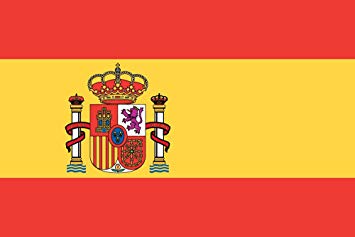
PROAD program Spain
In Spain, the PROAD program aims to give individualized aid to each top-level athlete, taking into account his or her own needs. A network of tutor-consultants has been established to analyze, with the athlete, the most suitable professional and educational path. There is also a branch devoted to underage top- level athletes (psychological, sporting and educational support).
In 2009, the Spanish Sport Council established the Programa de Ayuda al Deportista (Athletes' Support Program - PROAD) to provide elite athletes with group or individual e-counseling regarding education, employment, and career planning through a network of tutors-consultants (www.csd.gob.es). Furthermore, PROAD promotes agreements with institutions, organizations, agencies and companies directly or indirectly involved in the dual career process. Qualifications/dual careers in sports. Around 760 elite athletes enroll annually in the PROAD mentoring/tutoring program, which has proved to be useful in providing information on work/study opportunities during their sports career (de Subijana et al., 2015).
Supporting dual career in Spain: elite athletes' barriers to study.
Source https://www.cabdirect.org/cabdirect/abstract/20153336905
Author(s) : López de Subijana, C. ; Barriopedro, M. ; Conde, E.
Author Affiliation : Social Sciences Applied to Sport, Physical Activity and Leisure Department, in the Sport Sciences Faculty, Technical University of Madrid, Madrid, Spain.
Author Email : [email protected]
Editors : Stambulova, N. B.; Wylleman, P.
Journal article : Psychology of Sport and Exercise 2015 Vol.21 pp.57-64
Abstract : Objective: The aim of this study was to analyze whether a Career Assistance Program (PROAD) facilitates the dual career. Design and method: A cross-sectional, prospective and quantitative design was used. A questionnaire was sent to all of Spain's elite athletes from Olympic sports. Of the 2378 elite athletes, 575 (332 men and 243 women) completed the 29-item questionnaire. The overall response rate was 24.2%. Results: Most of the athletes perceived the dual career as difficult. Their most significant barriers are related to time management. The PROAD athletes and the non-PROAD athletes encountered the same barriers to studying. In general, the PROAD program seemed to have a positive effect on the academic level an athlete achieves. The athletes enrolled in the PROAD were more informed than the non-enrolled athletes. PROAD athletes were more proactive in demanding help and they had a closer relationship with the Spanish Sport Council than the non-PROAD athletes. Conclusions: Student-athletes have several problems with the normalized educational system. Sport psychologists should reinforce the athlete's strengths, and they should seek the opportunities the sport context provides to athletes. The barriers could be minimized by adopting certain strategies. The PROAD program seems to be useful in terms of providing information, in ensuring elite athletes work or study before the end of their sports career, in making them responsible and autonomous, and in being more active.
ISSN : 1469-0292
DOI : 10.1016/j.psychsport.2015.04.012
URL : http://www.sciencedirect.com/science/...
Record Number : 20153336905
Publisher : Elsevier Ltd
Location of publication : Oxford
Country of publication : UK
Language of text : English
Language of summary : English
Indexing terms for this abstract:
Descriptor(s) : athletes, career development, career education, constraints, Olympic games, sport, time management
Identifier(s) : vocational development
Geographical Location(s) : Spain
Broader term(s) : Developed Countries, European Union Countries, Mediterranean Region, OECD Countries, Southern Europe, Europe